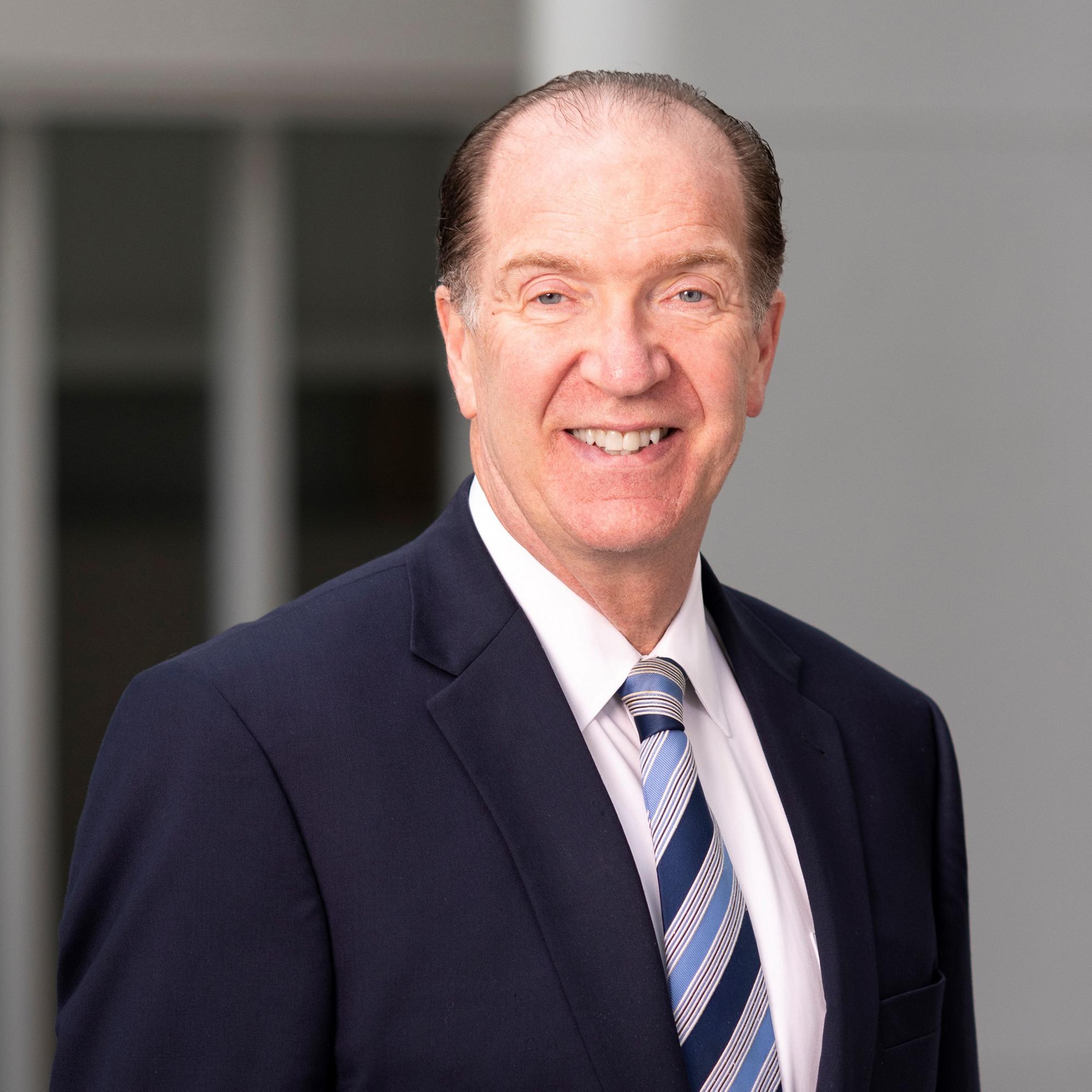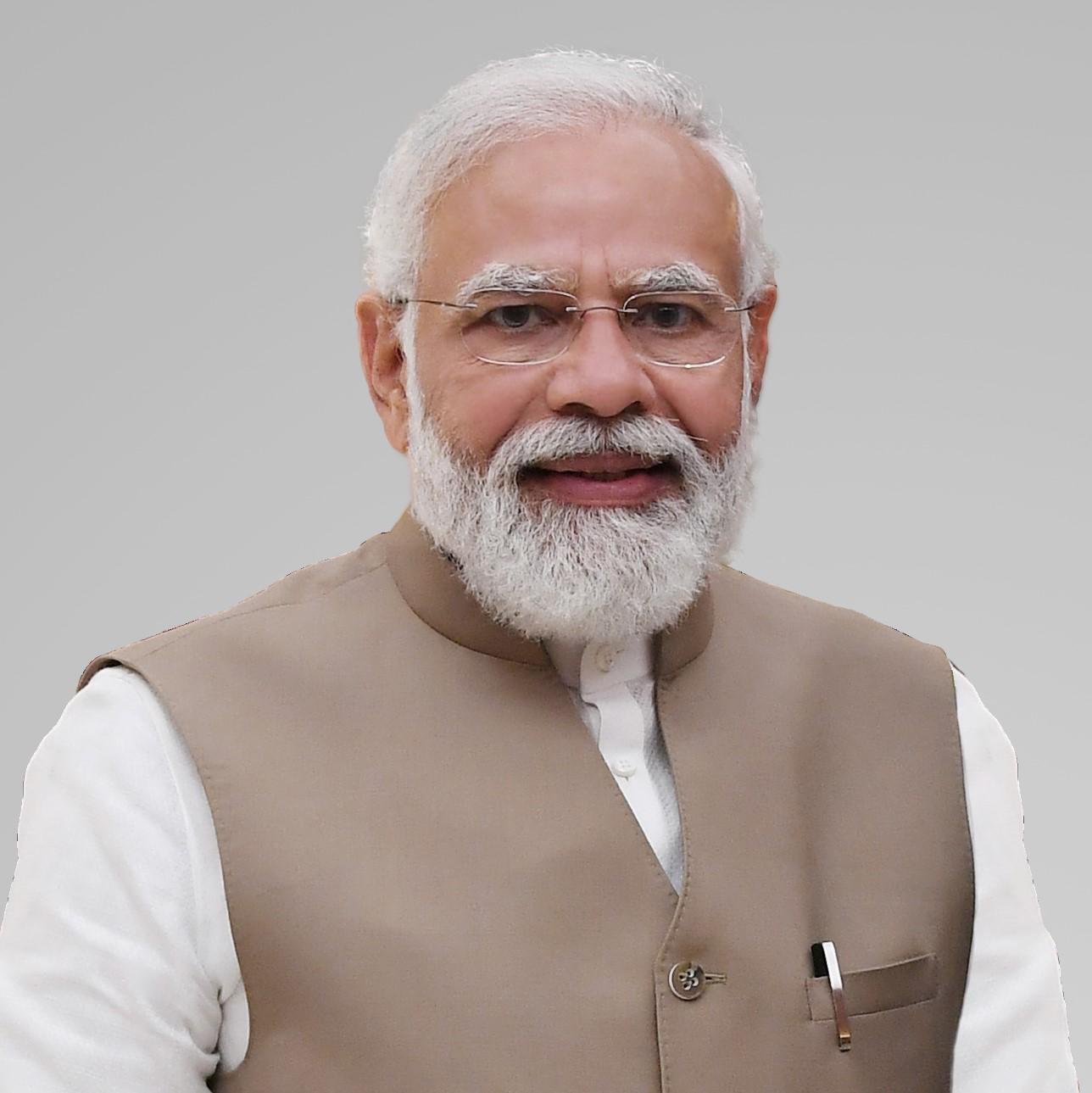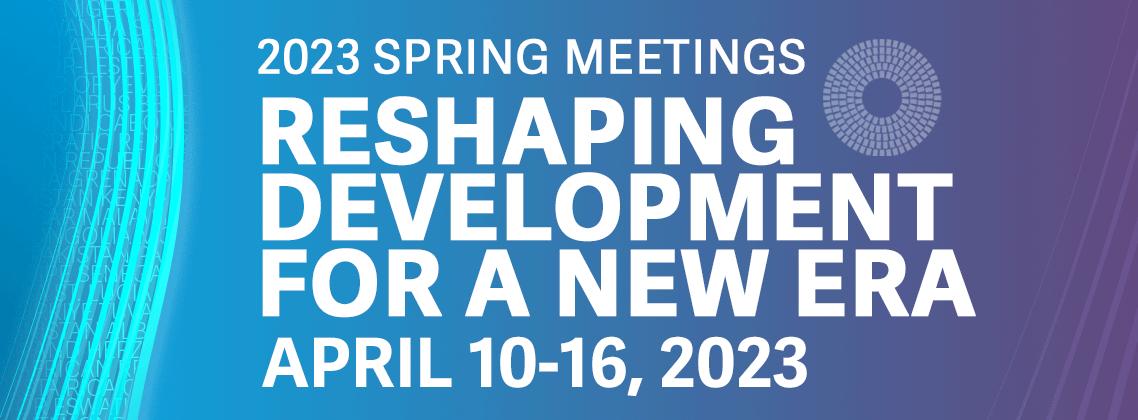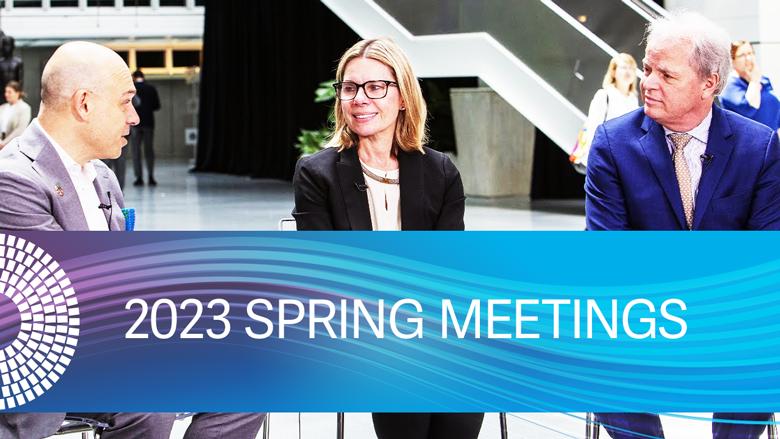Making it Personal: How Behavioral Change Can Tackle Climate Change

Making it Personal: How Behavioral Change Can Tackle Climate Change
- ABOUT THE EVENT
- TRANSCRIPT
The urgency of the climate challenge requires countries to learn quickly from each other, adapt to their own special circumstances, and be bold in implementing policies that reduce emissions and improve livelihoods.
Watch Prime Minister of India Narendra Modi and World Bank Group President David Malpass discuss how behavioral science offers new insights and non-traditional tools to help policymakers improve upon the design and implementation of policy interventions to ensure successful outcomes.
[Narendra Modi]
President of the World Bank, Her Excellency, the Minister of Energy Transition and Sustainable Development of Morocco, my cabinet colleague, Nirmala Sitharaman ji, Lord Nicolas Stern, Professor Sunstein and other distinguished guests. Namaskar.
I am delighted that the World Bank is organizing this event on impact of behavioral change on climate change. This is an issue close to my heart and it is great to see it becoming a global movement. Friends, Chanakya, a great Indian philosopher, wrote this over 2000 years ago: [speaks Sanskrit]
“Small drops of water when they come together, fill up a pot. Similarly knowledge, good deeds or wealth add up gradually.” This has a message for us. By itself, each drop of water may not seem much, but when it comes together with many other such drops, it makes an impact. By itself, each good deed for the planet may seem insignificant, but when billions across the world do it together, the impact is huge.
We believe that individuals making the right decisions for our planet are key in the battle for our planet. This is the core of mission in life.
Friends, the seeds of this moment were sown long ago. In 2015, at the United Nations General Assembly, I spoke about the need for behavioral change. Since then, we have come a long way. In October 2022, the UN Secretary General and I had launched Mission LiFE. The preamble of the outcome document of Cop27 also speaks about sustainable lifestyle and consumption. It is wonderful to see that experts in the climate change arena have also adopted this mantra. Friends, people across the world hear a lot about climate change. Many of them feel a lot of anxiety because they do not know what they can do about it. They are constantly made to feel that only governments or global institutions have a role. If they learn that they can also contribute, their anxiety will turn into action.
Friends, climate change cannot be fought from conference tables alone. It has to be fought from the dinner tables in every home. When an idea moves from discussion tables to dinner tables, it becomes a mass movement. Making every family and every individual aware that their choices can help the planet, can provide scale and speed. Mission LiFE is about democratizing the battle against climate change. When people become conscious that simple acts in their daily lives are powerful, there will be a very positive impact on the environment.
Friends, in this matter of mass movements and behavioral transformation, the people of India have done a lot in the last few years. People-driven efforts improved the sex ratio in many parts of India. It was the people who laid a massive cleanliness drive, be it rivers, beaches or roads, they are ensuring public places are free of liter. And it was the people who made the switch to LED bulbs a success. Nearly 370 million LED bulbs have been sold in India. This helps in avoiding nearly 39 million tons of carbon dioxide emissions every year. The farmers of India ensure the coverage of nearly 700,000 hectares’ farmland by micro irrigation. Fulfilling the mantra of per drop more crop, this has saved a huge amount of water. There are many more such examples.
Friends, under mission LiFE, our efforts are spread across many domains, such as making local bodies environment friendly, saving water, saving energy, reducing waste and e-waste, adopting healthy lifestyles, adoption of natural farming, promotion of millets. These efforts will save over 22 billion units of energy, save 9 trillion liters of water, reduce waste by 375 million tons, recycle almost 1 million tons of e-waste, and generate around $170 million of additional cost saving by 2030. Further, it will help us reduce the wastage of 15 billion tons of food. Let me give you a comparison to know how big this is. The global primary crop production in 2020, according to FAO, was about 9 billion tons.
Friends, global institutions have an important role to play in encouraging countries across the world. I am told that the World Bank Group is looking to increase climate finance from 26% to 35% as a share of total financing. The focus of this climate finance is usually on conventional aspects. Adequate financing methods need to be worked out for behavioral initiatives too. A show of support by the World Bank towards behavioral initiatives such as Mission LiFE will have a multiplier effect.
Friends, I congratulate the World Bank team hosting this event, and I hope that these meetings will come up with solutions to nudge individuals towards behavior transformation. Thank you. Thank you very much.
[audience applauds]
[moderator]
I'd like to invite President Malpass for opening remarks.
[David R. Malpass]
Thank you very much and very good to see everyone. Thank you, Prime Minister Modi, for your inspiring remarks. I was pleased to participate in June 2022 in the launch of the Prime Minister's Lifestyle for Environment or LiFE initiative with some of you here. In my remarks, then, I drew on the ancient texts of India to recognize the initiative's deep spiritual roots. It is clear that our lives and our environment are fundamentally linked. Changes in one affect the other. If we change ourselves, our environment will inevitably change.
From this premise, Prime Minister Modi's call is to catalyze a movement of the masses to change themselves and in so doing, protect and sustain the environment. Life focuses on the relationship between communities and their environment. It comes at a time when the urgency and scale of climate costs requires new and creative approaches.
Importantly, countries can improve the design and implementation of policies by using the right incentives to alter deeply entrenched habits and economic motivations. Countries can also provide insights to help firms and industries to explore innovative solutions that can lower emissions and boost adaptation and resilience. Our experience with economic policy suggests that interventions have the best chance of succeeding if they are also embedded in adequate pricing policies and institutions, which credibly invite communities to participate in development programs as part of a mass movement. For example, we cannot expect to mobilize communities to advocate for public transport when public sector bus companies are inefficient, or to farm in a sustainable way when fertilizer subsidies distort behavior, or to conserve water when free electricity for water pumps tells you to do otherwise.
In Rwanda, Uganda, Ethiopia, Ghana, Madagascar and Senegal, we look at obstacles that are preventing people from adopting low-carbon energy technologies. We learned that enlisting the support of peers and trusted local messengers in the community can lead to greater adoption of clean energy techniques.
In Brazil, we have worked with a state water company to explore how improved customer relations and service delivery can lead to more efficient water usage and waste reduction.
We've partnered with countries such as Ghana, Nigeria and Bangladesh that are promoting environmentally conscious lifestyles. I am sure they and other partners will be keen to engage with India around the Prime Minister's vision of linking lifestyle with the environment.
At the World Bank Group, we are committed to supporting countries in their efforts to integrate climate into their development plans and helping them deliver on their climate goals. This is an integral part of our Country Climate and Development Reports, the CCDRs. More innovative and creative policy approaches will be needed, in addition to financing.
I hope that today's discussion focusing on the Prime Minister's call for life will help enhance ideas that can transform the way we connect and can empower us to do it more efficiently and effectively. Thank you.




